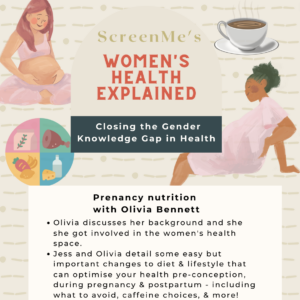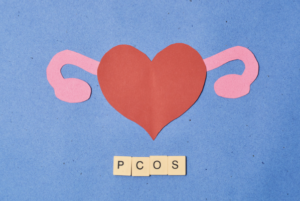BV or bacterial vaginosis is quite common, with 15% of people in the UK suffering from BV symptoms in a year. With more than half of these people having to be treated for BV again in the following 3 months — this is a really important topic to discuss what we can do to get rid of it, but also prevent it in the future!
What exactly is BV?
BV is when the vaginal microbiome becomes unbalanced. The vagina naturally has a balance of Lactobacilli bacteria, being the ‘good’ bacteria that keep your environment healthy. Therefore, when these bacteria become unbalanced or disrupted, this leaves it vulnerable for harmful bacteria to take over the vaginal environment.
How do I know if I have BV?
Although it is commonly associated with abnormal smell, symptoms also include:
- A (fishy) smell that worsens after sex
- A grey/white discharge
- A thin or watery discharge
- Itchiness or irritation
However, 50% of women with BV are asymptomatic (do not show symptoms), so it is really important to keep on top of your vaginal health and know what is going on in your microbiome!
BV and Thrush are often confused — but in short, thrush tends to include symptoms such as: redness, soreness, white/cottage cheese-like discharge, burning sensation after sex. So, if you think you may have thrush, then head over to our blog discussing what thrush is, how to treat it, and so much more!
What should I do if I have BV
- This is not usually a serious issue, but should you have BV, your GP or sexual health clinic should prescribe you with some antibiotics or a specific gel.
How to prevent BV
Some people suffer with recurrent BV. This usually indicates a vaginal imbalance, or something in your lifestyle which is triggering BV to keep happening.
- Check your vaginal balance with ScreenMe’s Vaginal Health test
- Test your vaginal microbiome to discover exactly what is going on inside of youScreenMe’s tests use gold-standard NGS and qPCR technology with 99.9% accuracyWe analyse 100% of the bacteria, yeast & trichomonas present.
- FREE 1:1 consultation allows you to create a plan of action with your expert — so you can overcome current BV, but also prevent future BV occurrences.
- Clothing choices
- Don’t wear tight leggings or trousers all-day
- Wear looser bottoms when you can
- Wear cotton underwear — this is much more breathable than other materials
- Washing
- Keep your genital area clean, regardless of whether you have a vagina or not
- This is not to be confused with needing to buy strong smelling ‘washes’ (as these can often have the opposite effect), simply water in this area will be sufficient.
- Practise safe sex
- If you are sleeping with multiple partners, we would advise that you wear some sort of protection. While it is not clear whether BV is sexually transmitted, wearing protection will keep you safe from any STDs as well.
Who can get BV?
Those with a vaginal environment can get BV.
Can BV be spread?
BV is usually thought to be not transmitted like a STD, and you can develop BV whether you are sexually active or not. However, there is some research to suggest that women who are sexually active are more likely to develop BV, and that men can carry BV on their penis.
Your vaginal health is really important for a whole host of health issues including: fertility, risk of disease, STDs, HPV infection, development of cervical cancer, and so much more — so unlock the key to your health with ScreenMe’s Vaginal & Sexual Health Packages today!
Fariba Khonsari








2 responses
This information is so helpful and informative and highlights the need for women to take control of their vaginal health as many doctors tests do not test for all the pathogens that might be causing their symptoms . I’ve ordered a test and look forward to seeing how healthy my microbiome currently is and whether I need to make any lifestyle changes.
Thank you for the lovely comment Beverley. We couldn’t agree more that women need access to support which can fully determine their vaginal microbiome composition, as well as support to make changes that can really improve their vaginal health and general wellbeing! Our intimate health practitioners look forward to working with you and helping you on your journey.